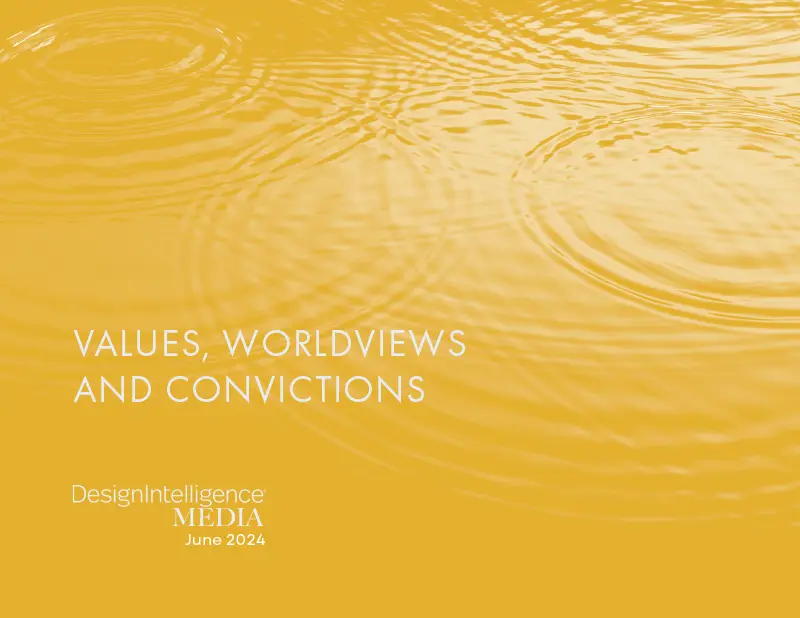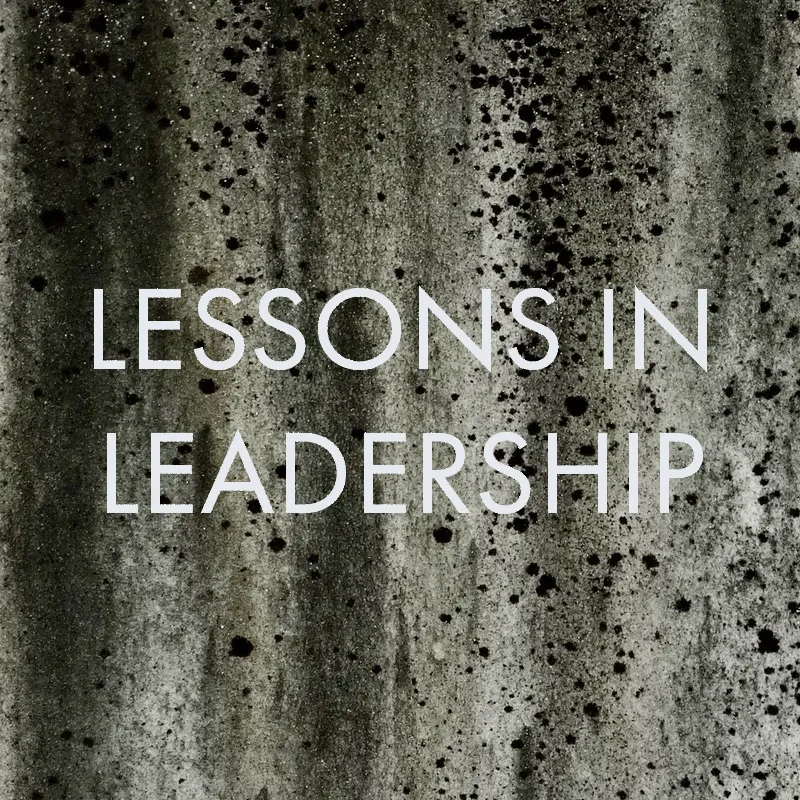
Values, Worldviews and Convictions
Dave Gilmore
President and CEO of DesignIntelligence
June 19, 2024
Dave Gilmore explores a trilogy of contexts.
Values
We humans are a complex assemblage of values. Values are those internal compasses, seemingly imperceptible, that direct the living of our lives. They’re formed and fashioned over time by several dynamics. Our families of origin bore a significant influence on how our values were formed. How language was used, what customs were maintained, the observed interaction between our parents, siblings and others all contributed to how our values became a part of our lives.
But what are values? Values are those things we hold precious. They are what we guard and care for. Values are where we run to when trouble strikes. Ultimately, values are what we live for and will give our lives for. So often, these kinds of meaningful themes operate in the unconscious backdrops of our lives that we’re often unaware of how they define us and how their expressions form others’ opinions and judgments of us.
Our values are replete with biases gathered over time by life’s shaping moments. We all desire to distance ourselves from negative, hurtful biases, but the human condition seems destined to accumulate biases like the sticker burrs that cling to our pant legs when we walk through a field. Only when we remain vigilant to debias our thinking, speaking and behavior do we gain positive ground. Debiasing is a discipline, not a singular, one-time choice. Regular assessments of how we react and respond, the language we use, how that language is deployed and how our actions manifest themselves in day-to-day human interaction and follow-on corrections mitigate the bias accumulation common to us all.
Knowing this, we can positively, hopefully alter our values by the choices we make, coupled with conscious, disciplined assessment and correction. One wise man (Paul of Tarsus), said long ago, “Be transformed by the renewing of your mind.” Transformation ultimately requires renewal in how we think, how we speak and, finally, how we behave.
If you are convinced of something, I can most likely unconvince you of it, but if you hold deep convictions about something, you can rarely be moved from your position.
Worldviews
Your worldview, or how you view the world, is the lens that focuses our values, lives and living experiences. That philosophy (aka worldview) is born of your values and sets the context through which you respond to just about everything.
For instance, if a person’s values are centered on relationship health, this sets the frame and focus for how they interact with the world. This is not limited to human interaction. If the philosophy of healthy relationships is unrestricted, this would naturally include one’s relationship with life’s broader context, including Planet Earth. A positive relationship with the planet would include caring and careful observation of the Earth overall, as well as the proximity of planetary life in your day-to-day life. Worldview is a powerful context, one far too often unacknowledged and misunderstood.
Much of my career has been dedicated to business mergers and acquisitions, opportunity assembly and negotiation. My success in these realms has largely been centered around this core theme of worldview. When interacting with others in relational contexts toward an eventual transaction, understanding their worldview clarifies the motives they bring to the negotiation. Such perspective removes the transactional nature and repositions the interaction as wholly human and personal. Pursuing an understanding of other’s worldviews is essential to advancing win-win outcomes in human interactions.
Convictions
Conviction is a strange and often misused term, with multiple meanings. More often than not, it’s used in a legal application. In that way, Oxford’s definition tells us conviction means “a formal declaration that someone is guilty of a criminal offense, made by the verdict of a jury or the decision of a judge in a court of law.”
But conviction has another definition. Per Oxford, it can also mean “a firmly held belief or opinion.” This is the definition I’ll use and apply here. From values to worldview to convictions, this threefold cascade of one’s deepest self, our most meaningful expressions come to the fore and shape how we live.
I have often said if you are convinced of something, I can most likely unconvince you of it, but if you hold deep convictions about something, you can rarely be moved from your position. One’s biases can support one’s convictions, which can result in possibly negative and aberrant outcomes. But your deep convictions are what usually result in transformative outcomes. The rightness or wrongness of such results must be judged in the larger context of overall society as planetary citizens.
It’s within this triumvirate of contexts that we encourage each of you to assess your positions.
Meaning and Action
Each of us has a core set of values, worldviews and convictions through which we encounter life and living. It’s within this triumvirate of contexts that we encourage each of you to assess your positions. The future of the design professions as individuals, teams, firms and as a whole — with all their promise of value — is best fulfilled when we operate out of authenticity and relational well-being. Design’s power is greatest when viewed by designers who see the world as positive, with high potential, who strive for equal opportunity and to optimize outcomes that raise the human condition and responsible planetary possibilities in complementary ways.
How will you lean into your convictions?
How will you be the change you desire?
Dave Gilmore is the president and CEO of DesignIntelligence.




